Search Images
Browse Content (p. 1593)

Image
Copper alloy foundation figurines with pegs representing Gods
Each peg has a very faint cuneiform inscription of Gudea, the ruler of the city-state of Lagash. Foundation pegs were buried in the foundation of buildings to magically protect them and preserve the builder's name for posterity. In this...
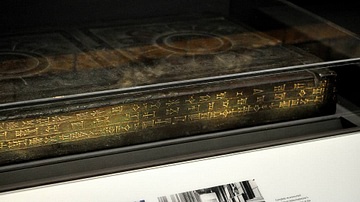
Image
A bronze door-slab from Ezida Temple, Borsippa
This door-slab came from the lower part of a flight of steps in the Temple of Ezida in Borsippa, part of the building works of the Babylonian king Nebuchadnezzar II (604-562 BCE). The recess is for a door-post. The pattern represents a carpet...

Image
Queen of the Night or Burney's Relief, Mesopotamia
The figure could be an aspect of the goddess Ishtar, the Mesopotamian goddess of sexual love and war, or Ishtar's sister and rival, the goddess Ereshkigal who ruled over the Underworld, or the demoness Lilitu, known in the Bible as Lilith...
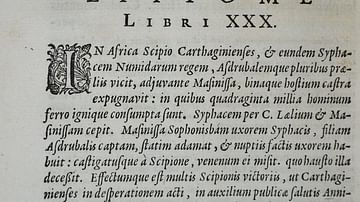
Image
Livy's Roman History, 1664
Historiarum ab Urbe Condita. - The complete history of Rome and its Urban Foundation -from its foundation to Augustine- by Titus Livius Patavina (59 BC – AD 17). Latin text. Edited with extensive commentary by Joannes Frederick Gronovius...

Image
Resurrection of Christ by Piero della Francesca
Fresco by the Italian Renaissance master Piero della Francesca, painted around 1463-65 CE. (Pinacoteca of Borgo San Sepulcro, Italy)

Image
Map of the Roman Conquest of Italy
This map shows the Roman conquest of Italy from 500 BCE to 218 BCE.
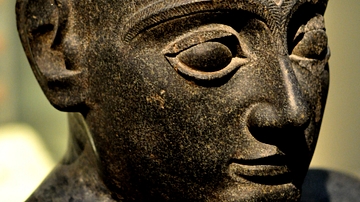
Image
Head of Dolerite Statue of Gudea of Lagash
It is possible that the head and body were not originally part of a single statue. From Girsu (modern Telloh), southern Mesopotamia, Iraq, reign of Gudea, c. 2130 BCE. (The British Museum, London)
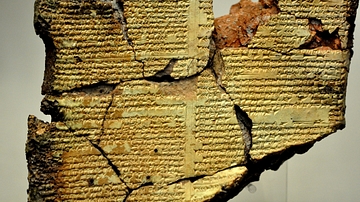
Image
A partially vitrified tablet from Nineveh
The age-old vulnerability of libraries in times of warfare applied as ever during the sack of Nineveh. Many tablets were badly smashed, while others probably perished altogether. With some, such as this tablet of lunar omens, severe burning...
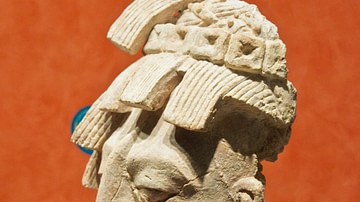
Image
Lord Pacal
K'inich Janaab' Pacal otherwise known as Lord Pacal and Pacal the Great, 603-683 CE and Mayan king of Palenque. (National Museum of Anthropology, Mexico City)

Image
K'inich Yax K'uk Mo
An incense burner thought to depict K'inich Yax K'uk Mo, the first Maya ruler of Copan. (Archaeological Museum of Copan, Honduras)